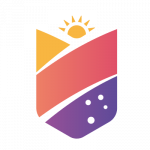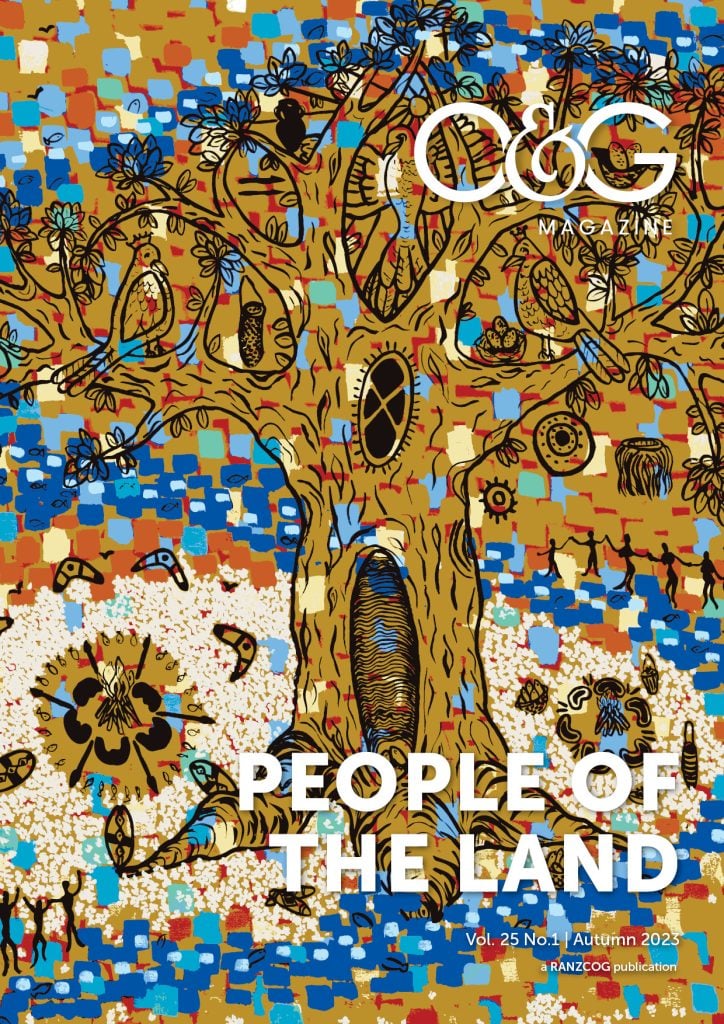RANZCOG is committed to ensuring a culturally safe environment for our members, trainees and staff in all aspects of our provision of services.
Cultural Saftey Steering Group
The College has set up a Cultural Safety Steering Group (CSSG) that will be responsible for reviewing and recommending appropriate revisions to the College’s Cultural Competency statement; revisions to Cultural Competency within the Curriculum Framework and CPD Framework; recommend measures to implement cultural safety culture within and across RANZCOG as an organisation; recommend steps required to ensure RANZCOG meets contemporary standards for a medical College and consulting widely with appropriate stakeholders to obtain their views.
More broadly, the group will steer RANZCOG to embed cultural safety in RANZCOG training programs, codes of conduct and professional standards and suggest ways in which culturally safe practice can be best included in RANZCOG activities, such as through the development and revision of existing RANZCOG statements, guidelines and other documents.
The first meeting of the CSSG took place in February 2023 and was well attended by its diverse representation of members. The group had robust and raw discussions about what cultural safety is, discussed the need for critical reflection and the biases of the clinician (and organisation) in addition to the historical focus on the acquisition of skills and knowledge related to cultural competency.
The drivers to progress work in cultural safety were outlined, including the standards for practitioner competencies in cultural safety as outlined by the Australian Medical Council (AMC) and the Medical Council of New Zealand (MCNZ), and the requirements for certification of medical colleges.
Cultural Safety Statement
A draft Cultural Safety Statement is currently being worked on and will seek to clearly define the areas of Cultural Awareness, Cultural Competency and Cultural Safety. The group agreed that as a bi-national College, focus should be on the two main cultures of Aboriginal and Torres Strait Islander and Māori, as our Indigenous populations with specific rights and needs. This is with the intention of embedding cultural safety within our organisation and addressing, acknowledging, and improving Aboriginal and Torres Strait Islander and Māori health inequities, and will expand to provide benefits for patients and communities across multiple cultural dimensions which may include Indigenous status, age or generation, gender, sexual orientation, socioeconomic status, ethnicity, religious or spiritual beliefs and disability.
Sabrina Hanna,
Head of Strategic and Cultural Initiatives
Aboriginal and Torres Strait Islander Cultural Safety eLearning module
In December 2022, following consultation with Indigenous Allied Health Australia (IAHA), Aboriginal community members, and the Aboriginal and Torres Strait Islander Women’s Health Committee (WHC), the Board approved a recommendation to withdraw the current module and develop a new module that provides meaningful and appropriate cultural safety training to RANZCOG members.
The new module, due to be release in mid-2023, will aim to improve the health and wellbeing of Aboriginal and Torres Strait Islander women, babies, and health practitioners, by increasing the cultural awareness and understanding of O&G Consultants, trainees, SIMGs, and junior doctors. The units will be designed to extend knowledge of Aboriginal and Torres Strait Islander history and culture, explore how bias and the ongoing impacts of colonisation affect the experiences of Indigenous women in healthcare settings, and identify practical ways to promote cultural safety and support Indigenous patients and colleagues.
In the interim, we have recommended trainees watch the 2022 NAIDOC week panel about pregnancy, birthing, & healthcare, explore the C1 Cultural Safety in Women’s Healthcare resource page, and complete the AIDA Cultural Awareness Modules.
Intercultural competency eLearning module
This module explores culturally different expectations for clinical communication and behaviours and aims to help trainees develop their own strategies for responding effectively when expectations differ between colleagues, patients, and their family members/carers.
This module was initially developed in 2013 in partnership with the Rural Health Continuing Education (RHCE) scheme from the Committee of Presidents of Medical Colleges (CPMC) and all fifteen Specialist Medical Colleges in Australia. In September 2022, CPMC granted permission for RANZCOG to review and update the content, and RACS has agreed to partner with us on this project.
Holly Robb,
Education Development Lead
Engagement and Rural Health Project background
Women in rural, regional and remote Australia experience unique challenges when accessing maternal health and gynaecological services (services), compared to counterparts in metropolitan areas. This results in inequitable access of services due to geographical isolation. This inequity extends to workforce shortages, and paucity of service and workforce data to better understand the barriers that impede effective service delivery.
Project aims
In response to these challenges, the College is undertaking the Mapping Maternal Health and Gynaecological Services in Rural, Regional and Remote Australia: Uptake, Barriers and Recommendations (mapping project) funded by the Australian Government Department of Health (the Department).
The mapping project has the following complementary aims with a focus on the delivery of services in rural, regional and remote Australia:
mapping the geographic distribution of services, workforce, levels of service, and population demographics; and
exploring the perspectives of Aboriginal and non-Aboriginal consumers on the facilitators and barriers they face when accessing services.
This is a unique opportunity for the College to produce a comprehensive overview of services, identify current service gaps, emerging workforce and population trends, and barriers to effective service delivery. Recommendations will then be made to the Department to support future service and workforce planning and facilitate steps towards achieving equitable access for all women.
Key highlights of the mapping project pilot:
The College is consulting O&G Leads in rural, regional and remote hospitals to better understand service delivery. This consultation is part of an ethics-approved research project that covers the following themes: available services, proximity to relevant services, models of care, workforce data, key service delivery achievements and challenges
The College worked in partnership with Murdoch University’s Ngangk Yira Research Centre to conduct yarning circles with 43 Aboriginal and non-Aboriginal women in the Goldfields and Wheatbelt regions of WA
The College collaborated with Flinders University to conduct yarning circles with 44 Aboriginal and non-Aboriginal women in the Far West Coast and Riverlands regions of SA
Cynthia Tapiwa,
Engagement and Rural Health Project Lead
Hauora Wāhine Māori
In Aotearoa New Zealand, RANZCOG continues to prioritise cultural safety and equity for Māori in all we do. RANZCOG’s Te Rautaki Māori me te Ara Whakamua (Māori Strategy and Action Plan) continues to guide our work in improving equity in O&G care. Some completed actions from Te Ara Whakamua so far are creating a te reo Māori style guide, review of CPD points for the MIHI501 cultural competence course and hosting our Aotearoa ASM with a foundation of Māori health equity. All these actions, and others, will continue to grow our understanding of how RANZCOG can best make change towards health equity in Aotearoa.
RANZCOG’s relationship with the University of Otago MIHI (Māori Indigenous Health Innovation) Department continues to grow and RANZCOG are so grateful for the amazing mahi MIHI do. With the change in the MIHI501 CPD points allocated, we look forward to not only our trainees filling up these courses, but more and more of our Fellows also. MIHI have adapted their online learning to also create a course for incoming SIMG’s who are new to the unique parts of Aotearoa and Māori culture. This is an exciting development to continue to offer cultural competence and safety to RANZCOG members.
As RANZCOG continues our journey, Te Rautaki Māori me te Ara Whakamua will grow and adapt, and lay the pathway. 2023 will have a large focus on how we support our Māori trainees, with a research project regarding Māori trainee recruitment and retention a top priority.
Bailey Parata,
Kaitohutohu Hauora Wāhine Māori
(Māori Women’s Health Advisor)
Cultural Initiatives
RANZCOG is proud to have made good progress with our First Nations work and our connection to the community over the past year. In early 2022, we had the great privilege of officially opening College Place with the traditional name Djeembana, meaning ‘gathering place’, on Boonwurung land, Naarm (Melbourne) as our new home and head office. Aboriginal Elders David Tournier and Janet Galpin from the Boonwurrung Land and Sea Council conducted the official smoking ceremony and Welcome to Country. Throughout the corridors on each floor of the College are traditional maps of Australia with beautiful colours marking our First Nations communities across the sprawling land. Traditional Aboriginal artwork is on display around the building and various meeting rooms and spaces have been gifted Indigenous names, a reminder and honour to the country on which we work and gather.
We held National Reconciliation Week and NAIDOC Week experiences and events. Natarsha Napanagka Bamblett, a prominent Indigenous leader, storyteller, and advocate for her people, took College staff through a moving session about everyone’s connection to land and country. The College also hosted a dynamic and thought-provoking panel discussion with prominent Aboriginal women and leaders in our community, to the 2022 theme ‘Be brave. Make Change’.
Through a successful Department of Health (DoH) funding proposal, RANZCOG was able to provide ten professional development scholarships to the value of $2,500 each, to support Aboriginal and Torres Strait Islander specialist trainees in obstetrics and gynaecology, prevocational doctors, and medical students in attending educational and networking events hosted by RANZCOG.
In late 2022 we had the pleasure of being a major sponsor at the Australian Indigenous Doctors’ Association (AIDA) Conference in the beautiful Yugambeh, Gold Coast region of Queensland. We had the opportunity to meet with many First Nations medical students, junior doctors, and other organisations. Members of RANZCOG’s Aboriginal and Torres Strait Islander Women’s Health Committee, led by Chair, Dr Marilyn Clarke, also facilitated an O&G skills workshop which was very popular at the conference. RANZCOG was also a major sponsor for AIDA’s 25th Anniversary Gala in 2022. RANZCOG continues to work closely with First Nations organisations such as AIDA to ensure that the College can understand and provide the necessary supports for our First Nations members and trainees. RANZCOG is a member of the AIDA Specialist Trainee Support Program (STSP) Cross-College Project Group. The aim of the project group is to build cultural awareness across medical Colleges, improve cultural safety for First Nations trainees and members, and remove barriers that impact the recruitment, selection, and retention of First Nations specialists.
A large body of work that is currently being undertaken in a joint capacity with the CPD team, is the redevelopment of our Cultural Safety and more specifically, First Nations health training modules. In 2022, we hosted a small focus group workshop with First Nations women who reviewed our existing modules and provided valuable feedback that has been provided to the CPD team for review.
Work continues our Reconciliation Action Plan (RAP) in collaboration with internal stakeholders and Reconciliation Australia. The upcoming iteration focuses on cultural safety for members, trainees, and staff; recruitment and retention of our First Nations trainees and, the provision of support as they transition through the training program life cycle and into early career. Our First Nations doctors have a profound and significantly positive impact on the Indigenous community and improvement in healthcare outcomes and so it is vital that we support them to continue this important work.
In addition to this, the College welcomed four new Aboriginal and Torres Strait Islander trainees via the trainee Selection process in 2022. We offer support to Indigenous medical students via mentoring and practice interviews, prior to Selection. Where possible, we also provide financial support and mentoring to existing Indigenous trainees on their journey to Fellowship.
Sabrina Hanna,
Head of Strategic and Cultural Initiatives





Leave a Reply